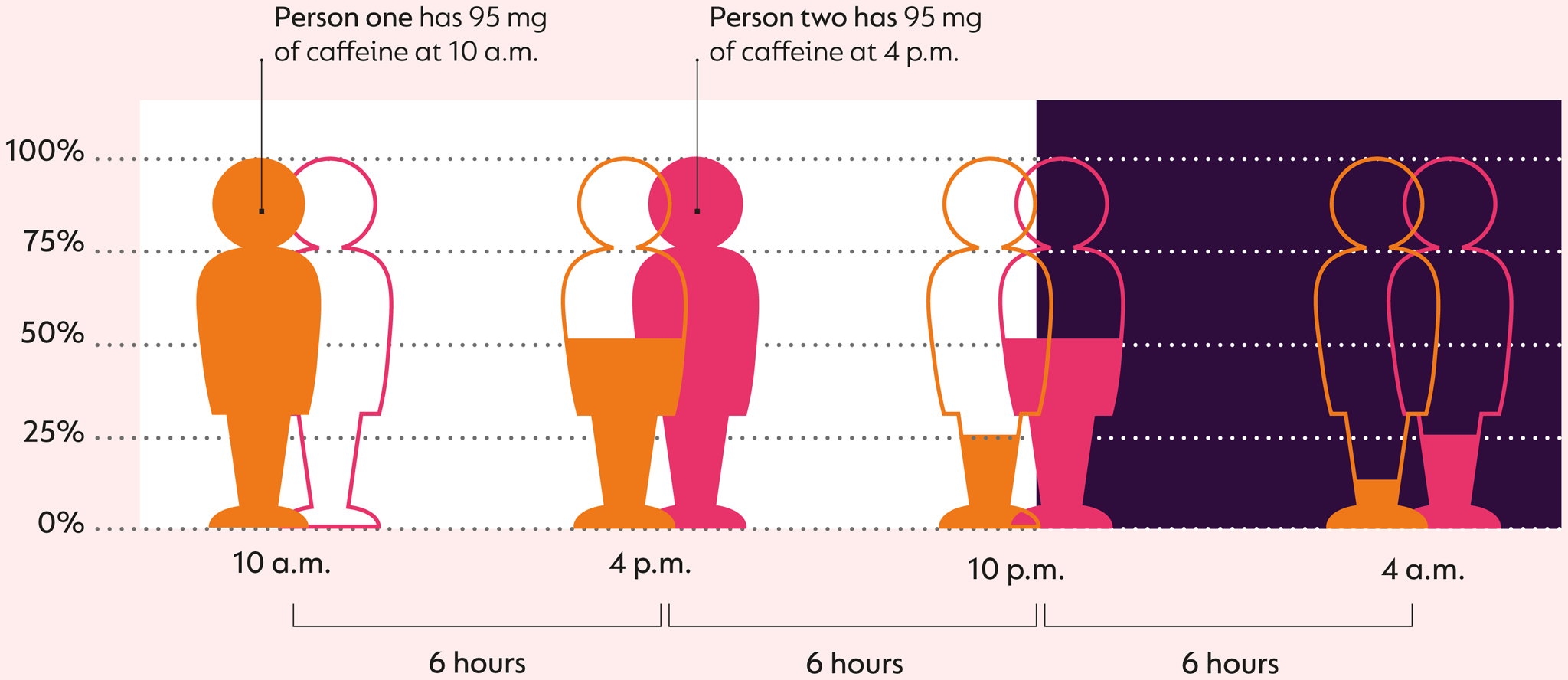Is caffeine really sleep’s no. 1 enemy?
Caffeine is one of the most widely used drugs in the world. For some people, it’s a kick-start to the day, whereas others report it does nothing for them. So how exactly does caffeine impact sleep?
Caffeine shows up everywhere, not only in food and drink, but also in toiletries, medications, and even in cosmetics. It can improve our performance, consolidate memory, and wake us up when we feel drowsy—and it’s this last fact that causes problems when it comes to sleep.
CAFFEINE AND THE BRAIN
Caffeine is a stimulant, triggering the release of adrenaline, the fight-or-flight hormone, which is why you experience a burst of energy when it enters your system. It also interferes with how the brain responds to the chemical adenosine. An essential piece in the sleep-wake puzzle, adenosine slows the central nervous system, building the urge to sleep as night approaches. Caffeine binds to the same brain receptors as adenosine, blocking the signals that make us feel sleepy. Everyone’s adenosine receptors differ due to genetics—so if caffeine doesn’t affect you, it may be you don’t have very “sticky” receptors for caffeine to bind to.
Caffeine league table
There can be a surprisingly high level of caffeine in everyday drinks and food. Based on average servings, coffee and energy drinks score highest, but there’s plenty lurking in cola, tea (including “healthy” green tea), and dark chocolate.

n Double-tap image to read the labels
THE HALF-LIFE OF CAFFEINE
The level of caffeine in your body drops by 50 percent roughly every six hours, so half of the caffeine from a 4 p.m. cup of coffee will still be circulating in your system at 10 p.m., blocking adenosine and making it a prime suspect as the cause of poor sleep. It’s not easy to gauge just how much caffeine you are consuming, so make sure you check the levels in your food and drink, especially if you know you are sensitive to its effects. Stick to a daily limit of 300 mg of caffeine (around three cups of coffee) for adults and less than 85 mg (one soft drink and one cup of tea) for children. You should also try to have your last caffeine fix by mid-afternoon so that most of it has been cleared from your system before you go to bed.
Rate of decline
Having caffeine earlier in the day gives your body a better chance of clearing it from adenosine receptors before sleep. Drinking coffee at 10 a.m. rather than 4 p.m. means less will remain in your system by 10 p.m.

n Double-tap image to read the labels
LIFESTYLE | Is caffeine really sleep’s no. 1 enemy?
CAFFEINE-FREE ENERGY BOOSTS
• Step out for 10 minutes A brisk walk will clear your head and reboot your system naturally. The added benefit is that you get a bit more exercise into your day, which will also help you sleep better at night.
• Drink more water Water can boost concentration by helping flush the brain of toxins. It also oxygenates brain cells, improving alertness.
